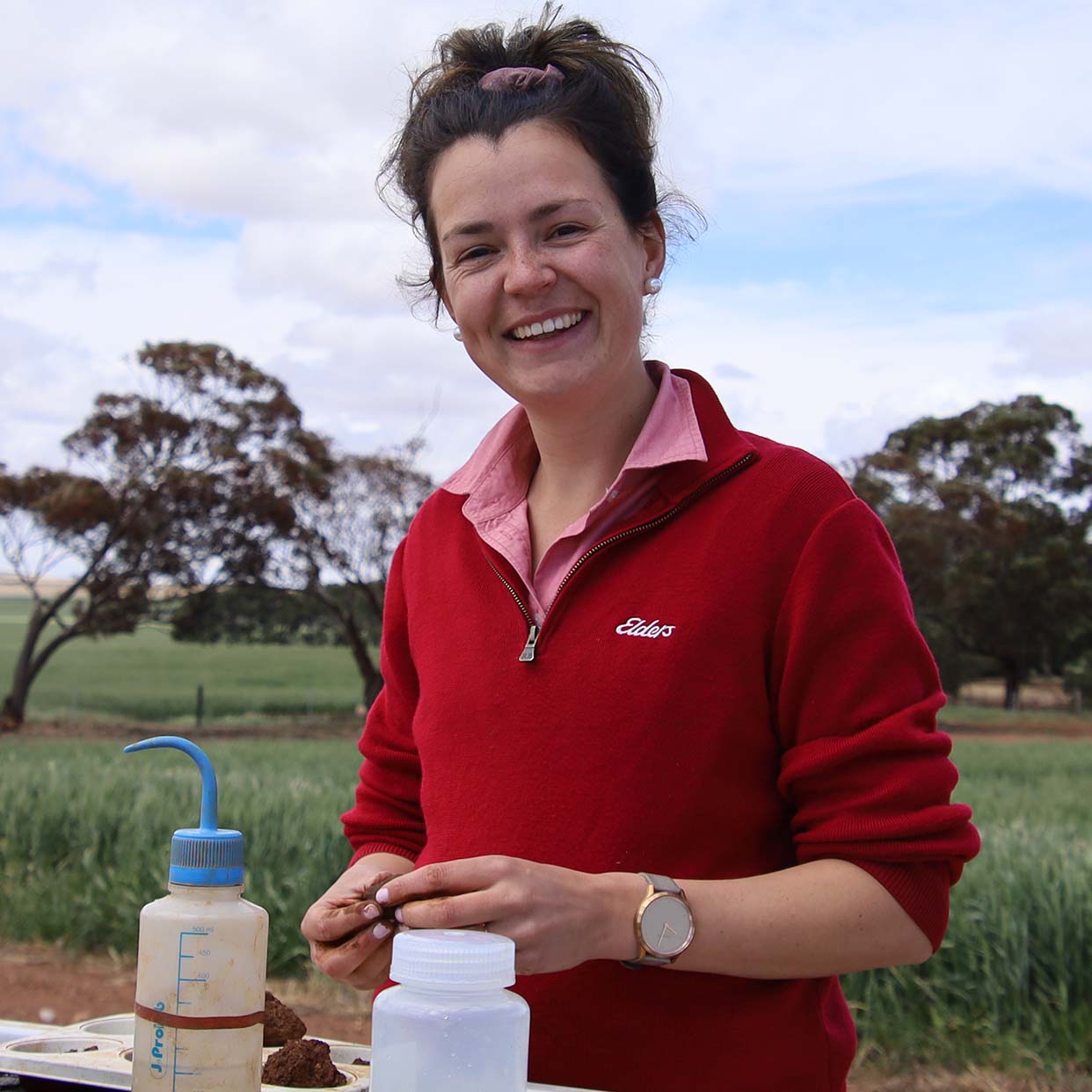Beth Humphris is putting her passion for soil science to good use, helping growers in South Australia’s Upper North better understand their soils and improve crop yields – one zone at a time.

As a soil consultant, she provides professional advice to growers on understanding their soils, discovering the reasons behind variability in different zones and guiding management for optimal yield and better returns on their cropping investment.
The agronomist and soil consultant at Elders Jamestown grew up just down the road on her family’s farm near Peterborough.
“I’ve been intrigued by soils my whole life, from growing up on the farm to studying agricultural science at university and getting into soil judging competitions,” she said.
“Soils change as you go down the profile, literally centimetre by centimetre, because of their original parent material or the way different things are introduced with rainfall or products and different chemical reactions."
“They’re all different based on the land formation process, what’s happening to them in terms of management and farming history, and environmental effects like rainfall or floods. Soils interest me and I always want to know more.”
After completing a Bachelor of Agricultural Science with the University of Adelaide, she stayed on to complete an Honours course in Advanced Soil Science.
Through university, she also took part in soil judging competitions with Soil Science Australia, travelling as far as Brazil to compete for Australia in the world competition and attending the World Soil Congress in Rio de Janeiro in 2018.
“Now I’m able to go use those skills I learnt with soil judging to identify layers, characterise soils and identify the best management for each zone within paddocks.”
Beth joined Elders Jamestown as an agronomist two years ago, working with growers to help plan, monitor and manage crops.
“I love my work because it’s the perfect balance of science, farming and personal relationships,” she said.
“On top of that, I get to spend a lot of time out in the paddock with amazing landscapes and great people and I have the backup of some of Elders’ most experienced agronomists.”
Beth’s fee-for-service work as a soil consultant is now taking off, as more and more farmers begin to understand the value she can offer.
She said demand for her work was being driven by the growth of precision agriculture, particularly the increasing amounts of data collected by farmers.
“Farmers have all this fantastic data, but they need someone with an agronomic understanding combined with that soil knowledge to make sense of it, explain what’s driving the variability and give them the power to make educated, confident management decisions,” she said.
“That’s where I can be quite handy.”
When working with clients, Beth starts by looking at all the yield maps and data already available on the paddock or farm. What she can’t explain from her desk, she investigates further through ground truthing.
“Essentially it comes down to identifying three zones, a high performing zone, a low performing zone that can be fixed with management and a low performing zone that can’t be fixed.”
Beth advises on corrective measures in the zones where there is potential for the best returns on investment.
“Ultimately, I’m helping growers achieve optimal yield in every zone,” she said. “It’s a process of picking off the low hanging fruit that will give them the best yield improvement for their investment, and then picking the next highest fruit until we’re managing each zone to achieve its optimal yield,” she said.
With increasing input prices and land prices, growers are keen to make the most of their existing cropping area.
“Growers are taking more interest in their soils. I can help them understand their soils, their limitations, how to avoid wasting expensive inputs on areas that won’t respond and where they can increase inputs to get a better bang for their buck,” she said.
Beth is also part of an extension project with the Upper North Farming Systems group which aims to build the knowledge base of local farmers in soil science.
“Our soils have a huge influence on-farm productivity and there is still so much to discover about managing soils in our area,” she said.
“As more people begin to understand the terminology of soils and get to know the differences in soils across their farms and how to manage them, that’s good for the whole community.”
Meet the team
